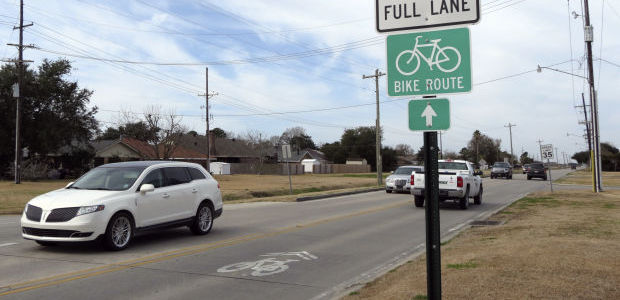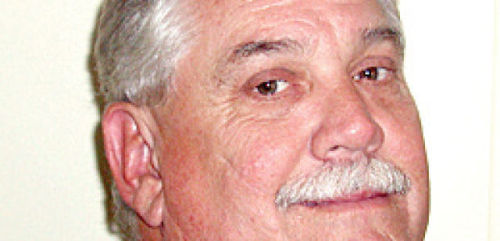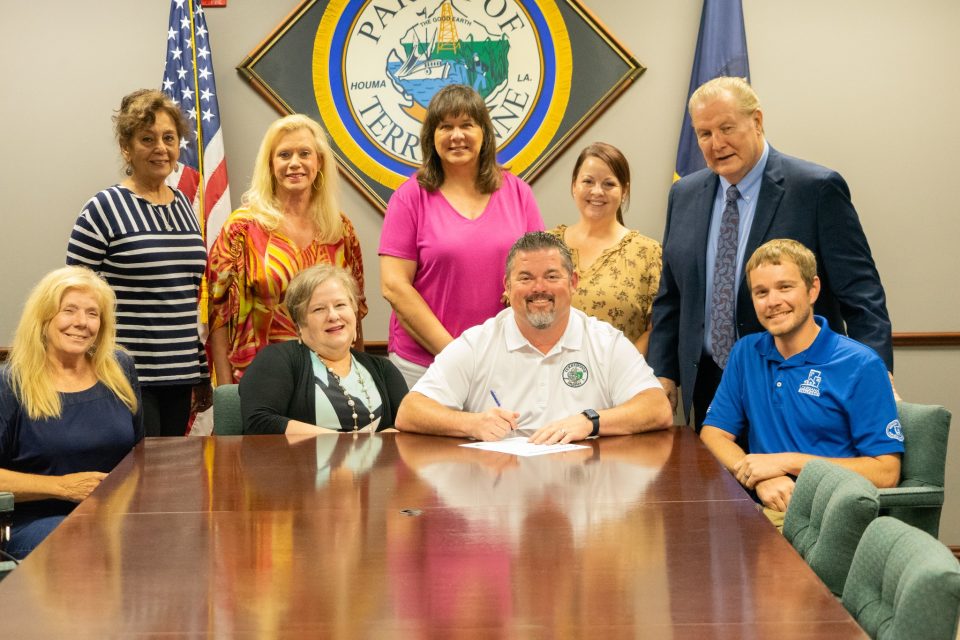Louisiana focuses on workforce development
January 21, 2014
Cyclists, motorist share the road on Southdown Trail
January 22, 2014For reasons personal and political, the absence of Lafourche Councilman Phillip Gouaux from the council’s first meeting since he was critically wounded amid his ex-son-in-law’s deadly rampage was glaring.
Gouaux remains hospitalized at New Orleans’ University Hospital, a Level 1 Trauma Center, said Parish President Charlotte Randolph, a longtime family friend. Gouaux successfully underwent surgery to repair a gunshot wound to his throat, and he is “a little more responsive,” Randolph said.
“It’s a matter of him recovering a little bit at a time,” Randolph said.
Gouaux was one of five people shot by Ben Freeman Dec. 26. Freeman killed Gouaux’s wife Pixie and Ochsner St. Anne General Hospital CEO Milton Bourgeois with a shotgun after Freeman strangled his then-wife Denise Freeman in their Houma residence, authorities said. Bourgeois’ wife Ann and the Gouauxes’ daughter Andrea were also shot.
Andrea contracted spinal meningitis from a wound to her back, Randolph said, and Ann has been discharged.
Lafourche Parish councilmen have expressed despair in seeing Gouaux shot and his family wrecked, and several, including his rivals, say they will not rush Gouaux to make a decision or return to the council.
Gouaux could have anywhere between three to seven months to make a decision whether to return to public service, depending on what action the council takes, according to provisions in the Home Rule Charter, the parish’s governing document.
Newly established Council Chairman Daniel Lorraine said he would ultimately like to see Gouaux make his own decision. In the meantime, he’s content to let all of the allotted time elapse.
“I feel like we need to let it go as long as possible, as long as we can let it go,” Lorraine said. “We’ll take the proper action according to what the Charter says.”
Gouaux’s constituents can reroute their concerns through the council or the administration, Lorraine said.
Alluding to Freeman, Lorraine cited the unpredictability of human behavior and raw power one unhinged person can wield in calling for metal detectors to be installed at the Mathews Government Complex, where the council meets bi-monthly and where dozens of employees work and interface with the public daily.
“Today, you can’t trust anybody,” Lorraine said.
During last week’s meeting, two other councilmen invoked Gouaux’s name during debate of an issue he had prioritized and they supported. Several stepped up to propose an ordinance and resolutions Gouaux had included on the agenda prior to the “tragic incident,” as Councilman John Arnold described it. It’s not uncommon for councilmen to defer an absent representative’s agenda item.
A smaller council means the weight of a sitting councilman’s vote is greater. An eight-person council means only four votes are needed to fell an ordinance or resolution. And in the event another councilmember has to miss a meeting, as Michael Delatte did last week, only three votes are required to spike a proposal.
Before last week’s meeting, many insiders expected the council’s vote to appoint its 2014 vice chair would be deadlocked. Two councilmen nominated three for the position: Arnold, Aaron Caillouet and Jerry LaFont.
LaFont said after the meeting his appointment by a 5-2 vote came by complete surprise; he was prepared to return in two weeks with a suggestion that each nominee serve in the position for four months of the year, he said.
Caillouet’s vote was taken first because he was nominated first. He secured four votes in his favor, missing the vice chair by a razor-thin margin considering two members were absent.
The parish’s Home Rule Charter sets forth the measures the council can take regarding absentee members.
Action cannot begin until a councilmember misses three consecutive months of regularly scheduled meetings. Gouaux’s clock started Jan. 14 and would end March 25.
After March 25, the council is permitted to launch an inquiry into the absence. Inquiries, which can last no longer than two consecutive regular meetings (April 22), are a means of investigating whether an inability to serve is temporary or permanent, according to the Charter.
A two-thirds council majority is required to determine whether such an inability to serve is temporary or permanent. If the council deems it permanent, the seat is vacated.
If an inability to serve is deemed temporary, the absent councilmember is given another 90 days. Should the inability to serve persist, the council by another two-thirds vote can declare a vacancy.
Should the degree of the councilmember’s inability to serve be contested, the council can appoint a panel of three doctors to investigate and testify as to their opinions on the matter.
After a council seat becomes vacant, the council has 30 days to appoint a replacement by majority vote. If more than one year remains on the term (the current council expires Dec. 31, 2015), the council is required to schedule a special election on the earliest election date allowed by law. The appointee is not permitted to run.
Randolph said the inquiry phase is not likely to be necessary.
“It will probably be (Gouaux’s) decision,” Randolph said. “Three months is a long time.”
Phillip Gouaux









